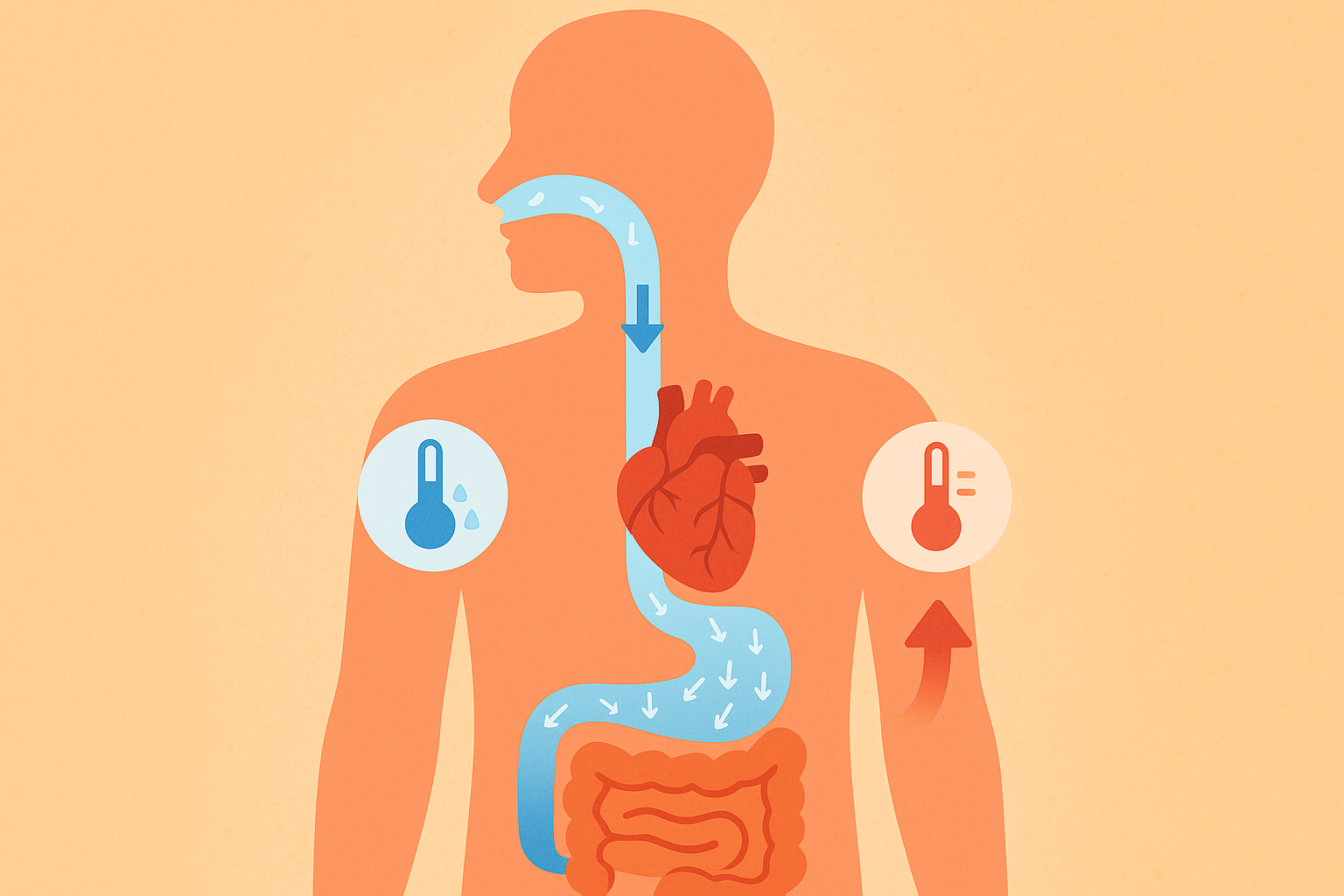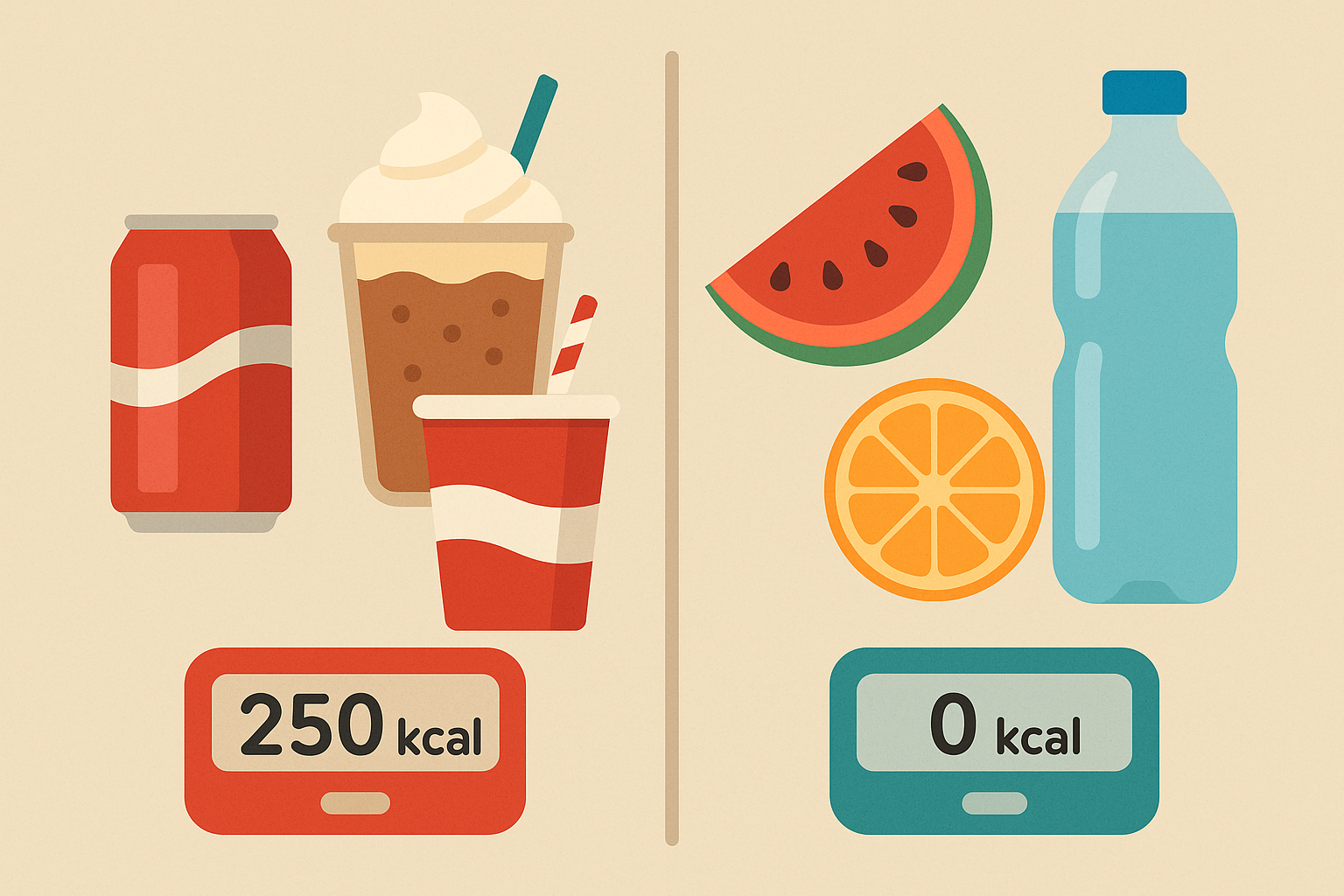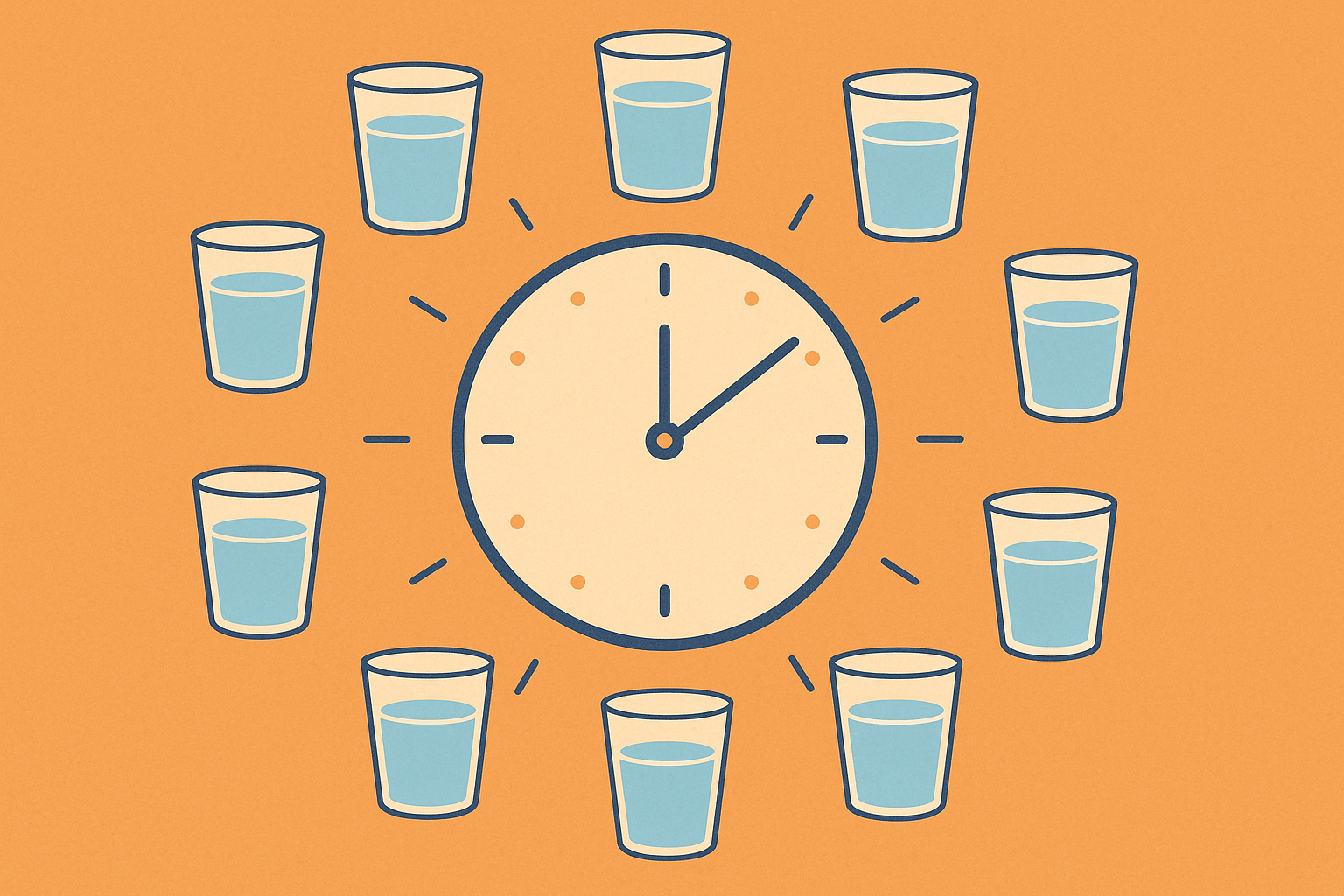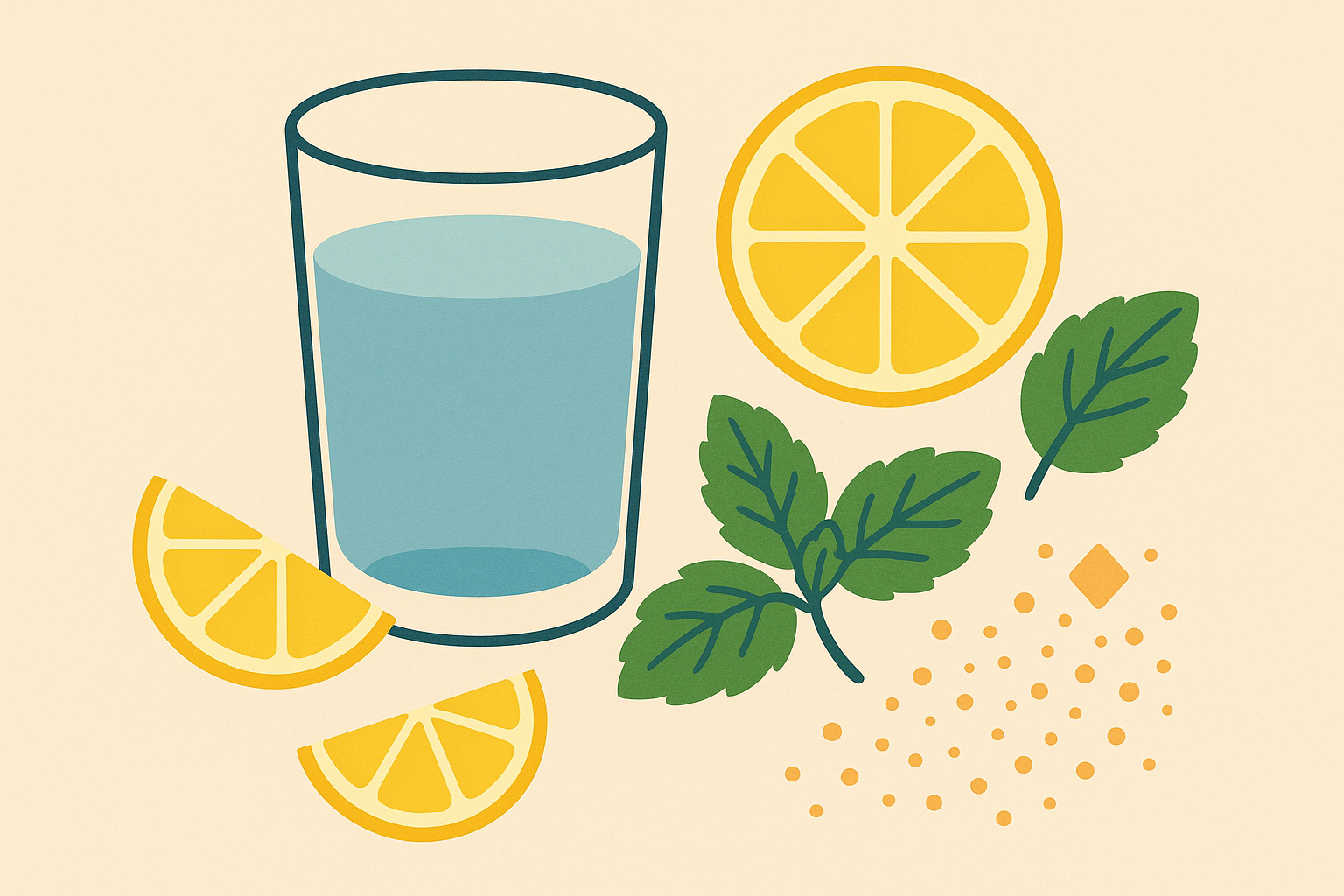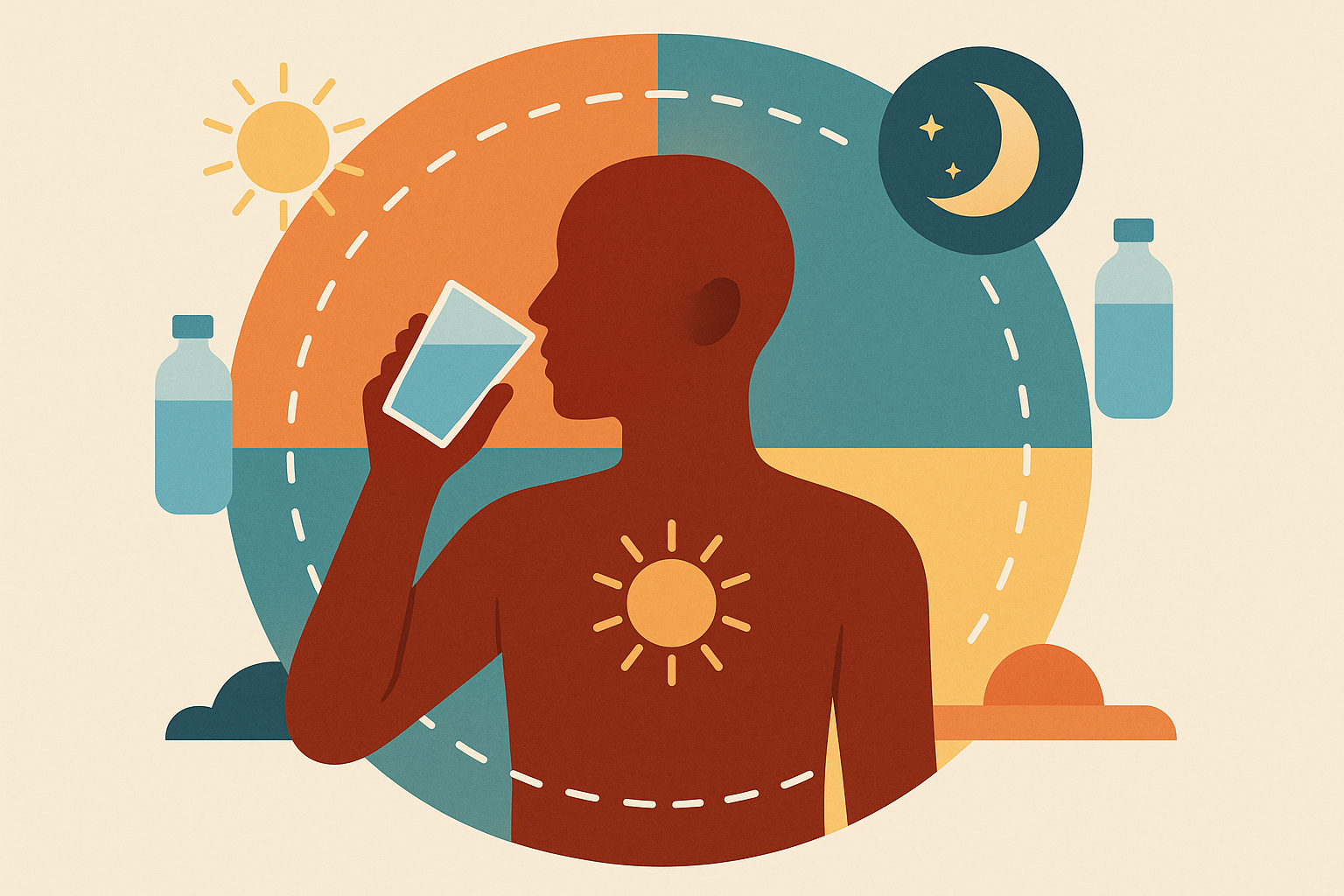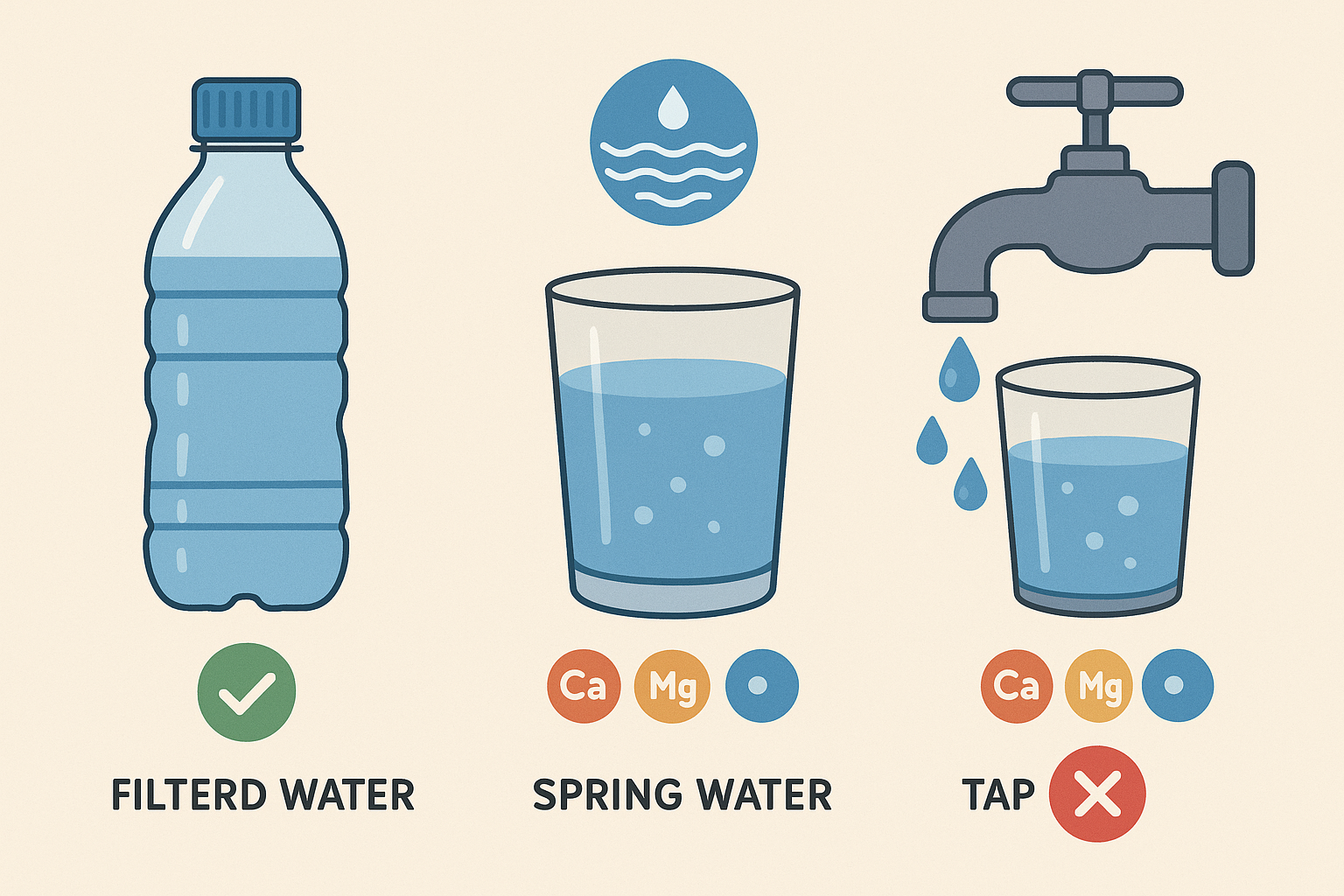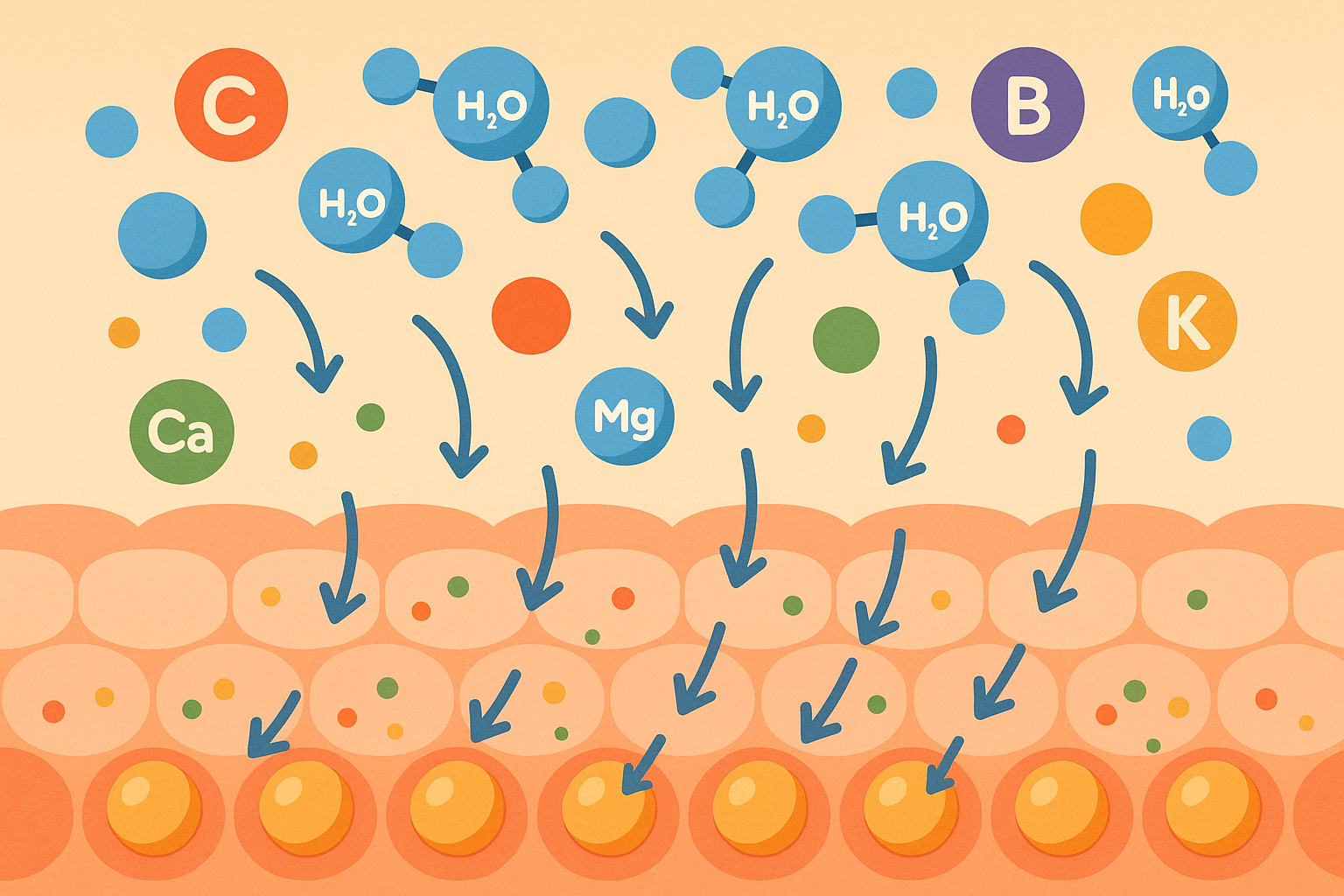What Science Actually Says About Water and Weight Loss
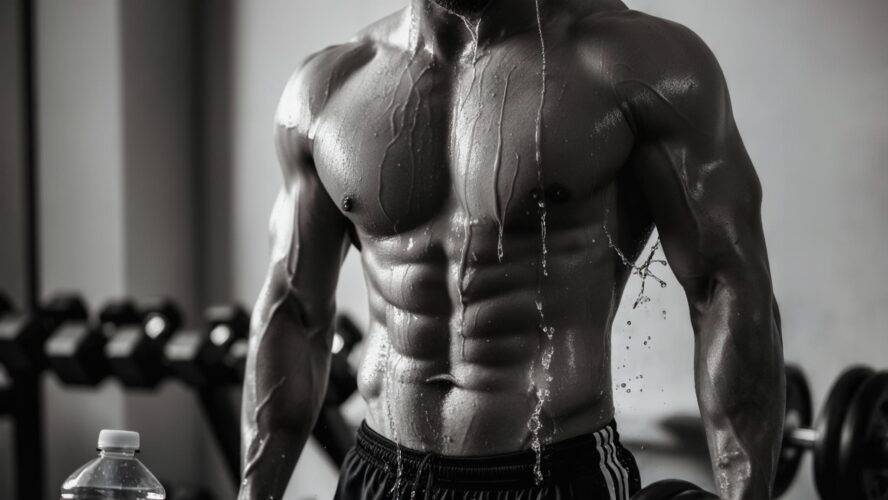
Research shows that drinking 17 ounces of water can increase how fast you burn calories by up to 30 percent for about an hour, according to a study published in the Journal of Clinical Endocrinology and Metabolism. This means your body is actually working a bit harder and burning some extra calories just from drinking water – which is pretty cool when you think about it.
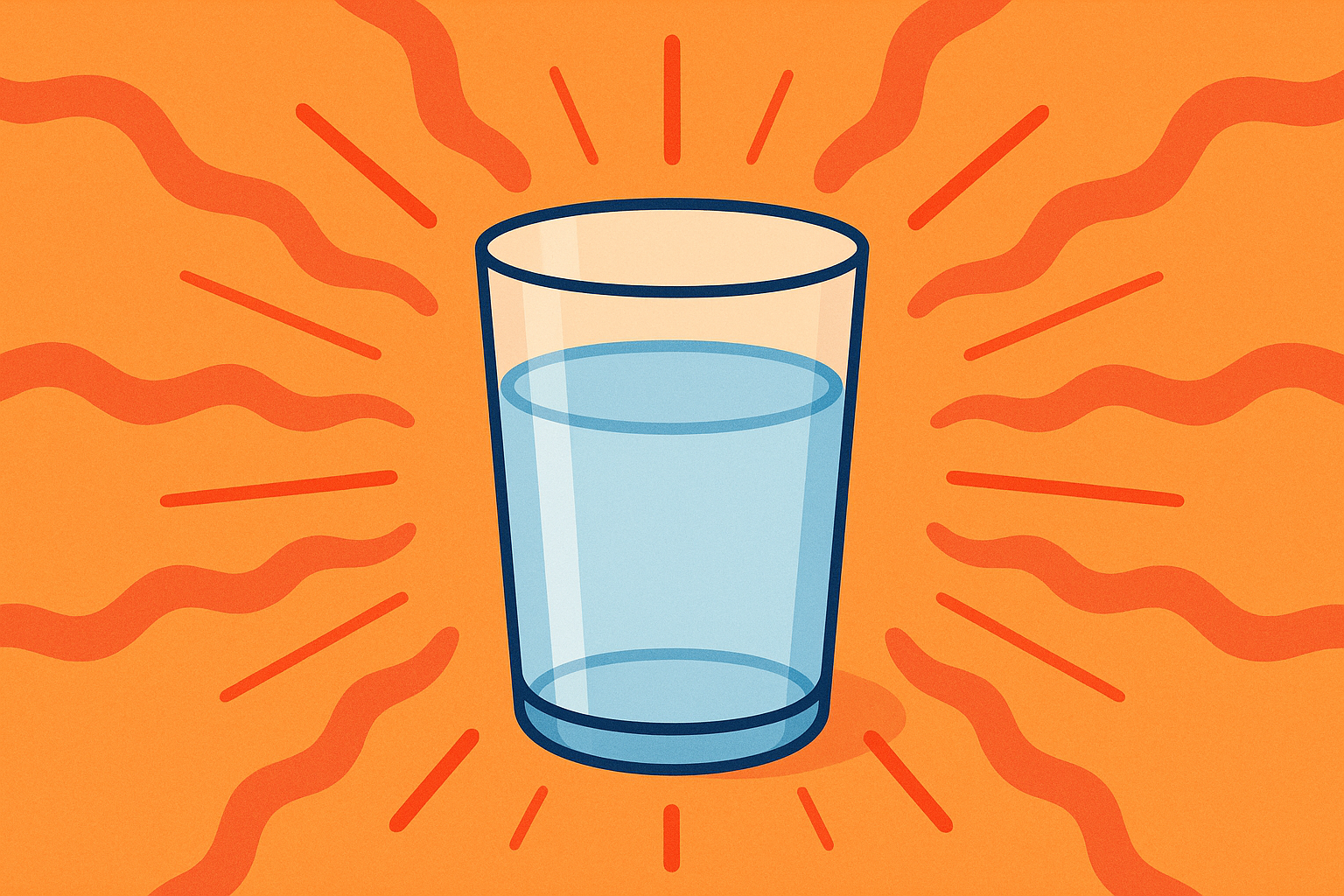
Table of Contents
- The Real Science Behind Water and Calorie Burning
- How Cold Water Actually Burns a Few Extra Calories
- Water’s Role in Breaking Down Fat (And Why It Matters)
- The Psychology of Water: How It Affects Your Hunger
- When to Drink Water for the Best Results
- Figuring Out How Much Water You Actually Need
- Simple Tricks to Make Water Work Better for You
- Making Water Part of Your Overall Wellness Plan
TL;DR
- Drinking 16 ounces of ice-cold water burns about 17 calories as your body heats it up (that’s roughly one potato chip’s worth, but hey, it’s something)
- Drinking water 20-30 minutes before meals might help you eat less by making you feel fuller
- Staying hydrated helps your body break down fat more efficiently
- Aim for about half your body weight in ounces of water daily, but don’t stress too much about exact numbers
- Cold water burns slightly more calories than room temperature, but the difference is pretty small
- Even mild dehydration can mess with your decision-making and make you crave junk food
- Water quality matters, but don’t overthink it – filtered tap water is usually fine
The Real Science Behind Water and Calorie Burning
Most people think water helps with weight loss just because it fills you up, but there’s actually more to it. Your body does burn some measurable calories processing water, especially when it’s cold. The process of heating water to body temperature and moving it around your system creates real work that your body has to do.
Now, let’s be honest here – we’re not talking about massive calorie burns. But understanding how this works can help you make water a more useful part of your weight management efforts.
According to research published in Nutrition Facts, drinking two cups of water can boost how fast you burn calories by up to 30 percent within an hour, and when researchers tested this in actual studies, this boost seemed to help people lose weight 44 percent faster.
Recent findings from Woman’s World highlight that “drinking enough water is one of the keystones to weight loss because most of us don’t drink as much as we should,” according to Dr. Asha Subramanian, a board-certified family and lifestyle medicine physician who says proper hydration is “simple, accessible and essential” for weight management.
For those interested in overall wellness, understanding how to boost immune system naturally works well alongside good hydration habits.
How Cold Water Actually Burns a Few Extra Calories
When you drink cold water, your body immediately starts working to warm it up to your normal body temperature of 98.6°F. This warming process requires energy, which means you burn calories. The colder the water and the more you drink, the more calories you’ll burn during this heating process.
Does drinking cold water burn more calories than room temperature water? Yes, but we’re talking about small differences here.
The Reality Check: 17 Calories Isn’t Magic
Here’s the specific math: drinking 16 ounces of ice-cold water (around 32°F) makes your body burn about 17 calories bringing it to body temperature. That’s roughly equivalent to one potato chip. Your body stays slightly more active for 10-90 minutes after you drink it, but again, we’re talking about a small boost.
I’ve tried this myself, and honestly, the energy boost you might feel is probably more about being properly hydrated than burning those extra calories.
A 2019 study published in the European Journal of Nutrition found that people who drank cold water at about 35°F ate less food overall – 19% fewer calories than those drinking body-temperature water and 26% fewer than those drinking hot water, as reported by Ajenda.
If you want to try this approach:
- Keep water cold (but not so cold it hurts to drink)
- Drink larger amounts (16-20 oz) rather than tiny sips
- Try having cold water about 30 minutes before meals
Sarah, a 35-year-old marketing professional, replaced her morning coffee with 20 ounces of ice-cold water and noticed she felt more energetic. By drinking cold water before each meal, she figured she was burning maybe 85-100 extra calories daily – not huge, but equivalent to a short walk without leaving her desk.
What’s Actually Happening in Your Body
Moving water through your body isn’t a passive process – it requires energy at the cellular level. The more water you drink and the better your body processes it, the more energy this requires. It’s not dramatic, but it’s real.
Simple approach:
- Spread your water intake throughout the day instead of chugging it all at once
- Check your urine color – pale yellow means you’re doing fine
- Drink more when you’re stressed or active
Water’s Role in Breaking Down Fat (And Why It Matters)
Staying hydrated directly affects how well your body can break down stored fat. When you’re dehydrated, the enzymes that break down fat don’t work as well. Research suggests that even mild dehydration can reduce fat-burning efficiency by up to 15%.
Why Dehydration Messes with Fat Burning
The enzymes responsible for breaking down fat cells work better when you’re properly hydrated. Even being a little dehydrated can slow these enzymes down by up to 15%. This means staying hydrated can make your weight loss efforts more effective, whether you’re exercising or just going about your day.
If you’ve ever felt like weight loss was harder some days than others, dehydration might have been part of the problem.
Your Body Needs Water to Clean Up After Fat Breakdown
When fat cells break down, they create waste that needs to be removed from your system. Your lymphatic system handles this cleanup, but it needs adequate water to work properly. Without enough water, this waste can build up and make you feel sluggish.
I’ve noticed that when I stay consistently hydrated, my energy levels are more stable throughout the day. Turns out this might be partly because my body is better at cleaning up metabolic waste.
The Psychology of Water: How It Affects Your Hunger
Here’s where water gets really interesting for weight management. Drinking water actually influences your hunger hormones and decision-making processes. You can use this strategically to help control your appetite without relying purely on willpower.
Does drinking water help you lose weight through psychological effects? The research suggests it does, and the effects are measurable.
Research by Popkin and others found that people who regularly drink water consume about 9% fewer calories per day – roughly 194 calories less – compared to those who don’t, as documented by Ajenda. That’s a pretty significant difference.
Just like intermittent fasting for women requires good timing, when you drink water can make a real difference in how hungry you feel.
How Drinking Water Before Meals Affects Your Appetite
Water consumption triggers responses in your body that influence hunger and fullness hormones. By timing your water intake right, you can create windows where appetite control feels more natural rather than like you’re fighting yourself.
The timing really does matter more than most people realize.
The 20-Minute Sweet Spot
Drinking 16-20 ounces of water 20-30 minutes before meals can temporarily reduce hunger hormone production while helping your body recognize fullness signals. This creates natural appetite reduction that helps with portion control without the mental struggle of trying to force yourself to eat less.
Simple approach:
- Drink a large glass of water 20-30 minutes before each meal
- Use room temperature water so it doesn’t mess with digestion
- Have a smaller glass during meals to help with fullness signals
According to research highlighted by Johns Hopkins, people who drank two glasses of water right before a meal in a 2016 study ate 22% less than those who didn’t drink water first. About two cups seems to be enough to help your brain register fullness.
Why Dehydration Makes You Want Junk Food
When you’re dehydrated, your brain interprets this as stress and starts craving quick energy from high-calorie foods. Staying properly hydrated reduces these stress-induced cravings naturally.
I’ve definitely experienced this – on days when I forget to drink enough water, I find myself reaching for snacks I wouldn’t normally want. The connection between hydration and cravings is real and happens fast.
How Water Affects Your Food Decisions
Even losing just 2% of your body water can mess with your thinking, leading to poor food choices and reduced willpower around calorie-dense foods. Your brain needs adequate hydration to make good decisions about food. When you’re dehydrated, you’re more likely to choose convenient, high-calorie options.
| How Hydrated You Are | How You Think | Food Choices You Make | Craving Level |
|---|---|---|---|
| Well hydrated (pale yellow urine) | Clear thinking, good decisions | Healthy, planned choices | Low to moderate |
| Slightly dehydrated (2-3%) | Less focused, poor judgment | Convenience foods, impulse buys | Moderate to high |
| Moderately dehydrated (4-5%) | Tired, poor concentration | High-calorie comfort foods | High |
| Very dehydrated (6%+) | Confused, bad decisions | Whatever’s easiest to grab | Very high |
Using Water to Naturally Control How Much You Eat
Water takes up physical space in your stomach, which can trigger natural fullness signals that help you eat less. This approach uses your body’s normal fullness mechanisms to make smaller portions feel satisfying.
Timing Water to Feel Full Naturally
The timing and temperature of water can be used to create fullness signals before you start eating. Your stomach has sensors that signal fullness based on volume, not just food. Strategic water consumption can activate these sensors before meals.
This approach works independently of willpower, making it reliable even when you’re stressed or tired.
Smart Drink Swaps That Save Calories
Replacing high-calorie drinks with water can eliminate hundreds of daily calories while helping you feel satisfied. Using sparkling water or water with natural flavors can create satisfying drink experiences with way fewer calories.
Simple steps:
- Replace caloric beverages with flavored water
- Try sparkling water to enhance the fullness sensation
- Eat water-rich foods alongside plain water for better results
When to Drink Water for the Best Results
Rather than drinking water randomly throughout the day, strategic timing can amplify both the calorie-burning and appetite-suppressing effects while supporting exercise performance and recovery.
How much water should I drink to lose weight? The answer depends on your timing as much as the total amount.
Drinking Water Before Exercise
Having the right amount of water before exercise can help with fat burning during workouts by supporting optimal body function and temperature regulation. The timing matters – too early and the benefits fade, too late and you might get cramps.
The 15-30 Minute Window Before Working Out
Drinking 16-20 ounces of cold water 15-30 minutes before cardio can help with fat burning by making sure your body is working optimally and giving you that slight calorie-burning boost. For strength training, room temperature water prevents cramping while still supporting your body’s function.
Simple approach:
- Cold water 30 minutes before cardio
- Room temperature water before strength training
- Pay attention to how much you sweat to figure out replacement needs
Mike, a 42-year-old runner, started drinking 20 ounces of cold water 20 minutes before his morning runs. He felt like his endurance improved and he was burning fat more efficiently. He lost an extra 3 pounds over 6 weeks compared to when he’d plateaued before, while keeping the same exercise routine and diet.
After-Meal Water Strategy
Strategic water consumption after meals supports digestion and nutrient absorption while preventing the metabolic slowdown that can happen when you’re dehydrated during digestion. However, timing matters – too much water right after eating can dilute digestive enzymes.
Wait 30-60 minutes after eating before drinking large amounts of water. This timing supports good nutrient absorption while maintaining the benefits of proper hydration.
Figuring Out How Much Water You Actually Need
The generic “8 glasses a day” advice ignores important factors that determine your optimal water intake. Your body composition, activity level, climate, and individual metabolism all influence how much water you need for best results.
Calculating Based on Your Body
Muscle tissue requires more water for optimal function than fat tissue. Standard recommendations fail most people because they don’t account for individual differences. Calculating your needs based on your specific body gives you a better starting point.
Just like understanding your metabolism is important for weight management, figuring out your personal hydration needs based on your body ensures optimal support.
A Simple Formula That Actually Makes Sense
Your water needs should be based on your lean body mass rather than total body weight. Muscle tissue is more active and requires more water to support its processes, while fat tissue has minimal water needs.
Simple calculation:
- Take your weight in pounds and divide by two – that’s roughly how many ounces to aim for daily
- Add 12-16 oz for every hour of exercise
- Add about 20% more in hot or dry weather
- Don’t stress too much about being exact
Adjusting for How Fast Your Body Burns Calories
If you have a naturally fast metabolism or are actively trying to lose weight, your water needs increase beyond standard calculations. People with faster metabolisms go through water reserves more quickly, making consistent replacement important.
| Body Weight | Daily Water Goal | Add for Exercise | Add for Hot Weather | Add During Weight Loss |
|---|---|---|---|---|
| 120-140 lbs | 60-70 oz | +16-20 oz | +12-16 oz | +20% of total |
| 140-160 lbs | 70-80 oz | +20-24 oz | +16-20 oz | +20% of total |
| 160-180 lbs | 80-90 oz | +24-28 oz | +20-24 oz | +20% of total |
| 180-200 lbs | 90-100 oz | +28-32 oz | +24-28 oz | +20% of total |
| 200+ lbs | 100+ oz | +32+ oz | +28+ oz | +20% of total |
Gradually Increasing Your Water Intake
Dramatically increasing water intake overnight can overwhelm your system and mess with your electrolyte balance. A gradual increase lets your body adapt while maximizing benefits. This approach also helps you find your optimal intake level without negative side effects.
Building up gradually works better than shocking your system with sudden changes.
Week-by-Week Water Increase
Starting with your current intake and gradually increasing by 16 ounces weekly allows your kidneys and electrolyte systems to adapt. This prevents the bloating, constant bathroom trips, and electrolyte problems that can happen with sudden dramatic increases.
Simple progression:
- Week 1: Track what you currently drink
- Week 2: Add 16 oz to your current intake, spread throughout the day
- Week 3: Add another 16 oz if you’re feeling good and seeing benefits
- Week 4: Adjust based on how you feel, sleep quality, and progress
Simple Hydration Checklist:
- ☐ Track what you drink now for 3 days
- ☐ Figure out roughly how much you should aim for
- ☐ Get a water bottle with measurements
- ☐ Set phone reminders if you forget easily
- ☐ Check urine color to see if you’re on track
- ☐ Adjust based on activity and weather
- ☐ Increase gradually by 16 oz weekly
Simple Tricks to Make Water Work Better for You
Water’s benefits can be enhanced through strategic combinations with natural compounds and timing protocols. These strategies go beyond basic hydration to create effects that enhance how your body absorbs water and uses it for metabolic processes.
You can make water work more effectively with these simple optimization techniques that most people never think about.
Adding Electrolytes for Better Absorption
Adding specific electrolytes to water helps your body actually absorb and use it better while supporting increased water needs during active weight loss. Plain water sometimes just passes through your system without optimal absorption, but adding the right stuff can improve how well your body uses it.
Understanding proper electrolyte balance works well with improving digestion naturally, as both support optimal body function.
Simple Morning Electrolyte Boost
Starting your day with electrolyte-enhanced water supports your body’s natural rhythms and helps with energy after the overnight fasting period. Your body loses electrolytes during sleep, making morning replacement helpful for optimal function.
Simple approach:
- Add a pinch of good sea salt to your morning water
- Consider magnesium and potassium supplements with afternoon water
- Use trace mineral drops for evening hydration if you want to get fancy
Jennifer, a busy executive, added a pinch of high-quality sea salt and lemon to her morning water routine. Within two weeks, she felt more energetic, had fewer afternoon cravings, and lost 4 pounds without changing her diet – just by optimizing how her body used water.
Mixing Up Water Temperature Throughout the Day
Alternating between cold and room temperature water creates repeated small metabolic boosts while supporting different aspects of digestion. This approach maximizes the small calorie-burning benefits while preventing your body from adapting to any single temperature.
Cold water in the morning and before exercise, room temperature with meals, and cool water in the afternoon creates good patterns.
Timing Water with Your Natural Body Rhythms
Aligning water consumption with natural daily rhythms can help with sleep quality, stress hormone regulation, and overnight metabolic processes. Your body’s water needs and processing ability change throughout the day based on hormonal fluctuations.
Daily timing that makes sense:
- 20-24 oz when you wake up to support morning energy
- 16 oz mid-morning for brain function
- 12-16 oz before meals for appetite control
- Minimal intake 2 hours before bed so you can sleep
Making Water Part of Your Overall Wellness Plan
The most effective water strategies align with overall wellness principles that support general health rather than focusing only on calorie burning. True hydration optimization considers water quality, supporting nutrients, and lifestyle factors that help your body use water effectively.
Creating a comprehensive approach means combining proper hydration with hydrating foods that naturally support your body’s water balance.
Why Water Quality Actually Matters
The source and purity of your water affects how efficiently your body can use it. Filtered, mineral-rich water provides better benefits compared to tap or distilled options because it contains trace minerals necessary for optimal cellular function.
Investing in decent water filtration or choosing mineral-rich spring water can enhance the benefits you get from proper hydration, though don’t stress too much about perfection.
Nutrients That Help Your Body Use Water Better
Certain nutrients work together with water to support the metabolic processes that help with weight management. B vitamins, magnesium, and trace minerals enhance water utilization at the cellular level, creating compound benefits that go beyond simple hydration.
These nutrients support the processes that water facilitates, making your hydration efforts more effective.
Similar to how essential daily supplements support overall health, specific nutrients can help your body utilize water better for metabolic processes.
Simple Water Enhancement Checklist:
- ☐ B-complex vitamins for energy metabolism
- ☐ Magnesium for muscle function and enzyme activation
- ☐ Potassium for cellular fluid balance
- ☐ Trace minerals for optimal enzyme function
- ☐ Natural electrolytes for better absorption
- ☐ Vitamin C for antioxidant support
Final Thoughts
Understanding the science behind water and calorie burning transforms hydration from a simple health habit into a strategic weight management tool. The small metabolic effects, hormonal influences, and optimizations we’ve covered aren’t just theoretical – they’re measurable, practical benefits you can start experiencing right away.
What I find most interesting about this research is how it challenges the oversimplified “drink more water” advice we’ve all heard. The temperature matters a little, the timing matters more, your individual body matters most, and the quality of your water can make a difference. These details separate basic hydration from actual optimization.
I’ve personally tried many of these strategies, and while the effects aren’t dramatic, they’re noticeable – better energy levels, fewer random cravings, and more effective workouts. The key is starting gradually and paying attention to how your body responds.
Let’s be real though – if you’re hoping water alone will solve your weight struggles, you’ll be disappointed. But it’s one small, easy thing that might help a little, and when combined with other healthy habits, those little things add up.
For those looking to support their hydration strategy with complementary wellness products, Organic Authority offers carefully vetted plant-based supplements that support digestion and metabolism, working well with proper hydration. Their bioavailable collagen products also pair nicely with optimal hydration to support cellular health. Consider exploring their offerings to create a comprehensive approach to wellness that goes beyond just drinking more water.
Try drinking a glass of water before your next meal and see how you feel. If it helps, great. If not, you’re still properly hydrated, which is never a bad thing.

